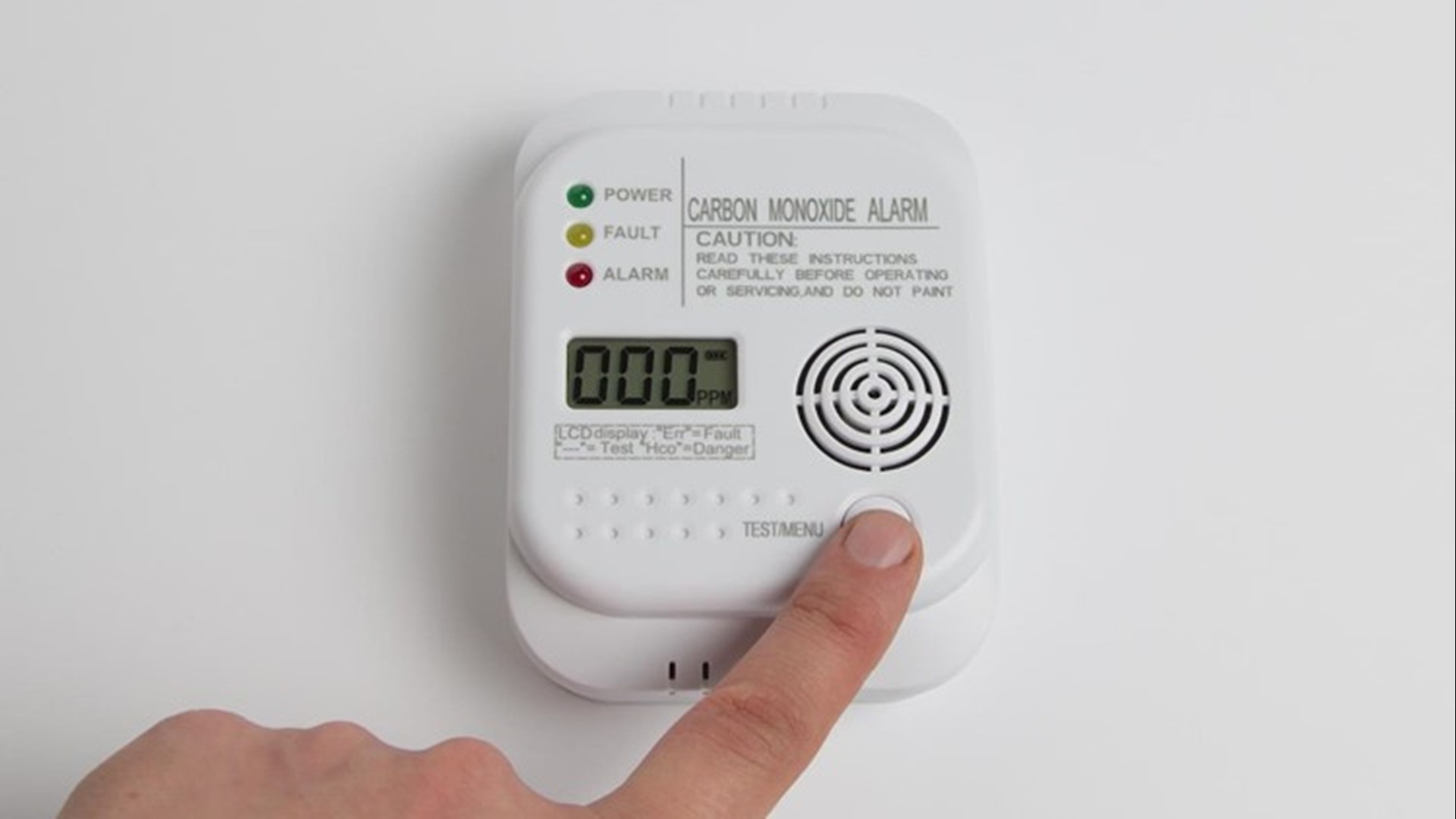HAZLETON, Pa. — A speaker inside the Hazleton Fire Department on East Broad Street lets firefighters know when it's time to head out the door.
But officials from fire companies in greater Hazleton and from the Lehigh Valley Health Network are spreading the word that everyone should have something similar in their home: a carbon monoxide alarm.
"Carbon monoxide is a colorless, odorless gas, so you're not going to see it, you're not going to smell it, so it is insidious in that way," says Dr. Kira Weaver with emergency medicine at LVHN.
This message comes after a number of incidents involving carbon monoxide in the Hazleton area.
"Homes that don't have working carbon monoxide detectors, and we're also finding a lot of homes that are double family homes where one side does have a working CO detector. One side doesn't," said Hazleton Fire Chief Donald Lesko.
"If you're in a duplex house, and you think just because you have electric heat, you don't need a CO detector, you're incorrect," said Giardville Fire Chief Frank Zangari.
Weaver says carbon monoxide harms you by taking the place of oxygen in your bloodstream. The first signs of poisoning are headache, dizziness, and shortness of breath.
"What happens is it can affect your brain, your heart, and your ability to breathe. Those are the big things that CO poisoning affects," said Weaver. "So it can do things like cause chest pain, or you know, abnormal heart rhythms. The other thing it could do is it can cause, in severe, severe cases, it can cause death from cardiac arrest."
Carbon monoxide can have a serious effect on your pets, too.
"Pets are sensitive to it," added Weaver. "They're more sensitive than people. So keep in mind, if you love your pets, that it takes a lot less carbon monoxide to, you know, potentially harm your cat or your dog."
"At the cost of about $10 to protect your life, you can save your life before our siren or pagers ever go off. We ask every home to have a CO detector," added Zangari.
If you think you are having a carbon monoxide emergency in your home, you should call 911 immediately.

